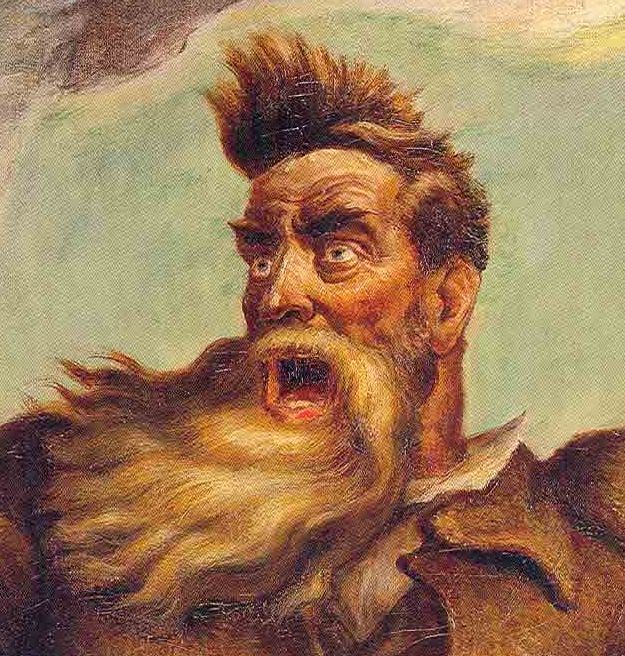
Posted on 04/22/2015 7:51:55 AM PDT by Sean_Anthony
Confederate History and Heritage Month
Tennessee Senator Edward Ward Carmack said it best in 1903:
“The Confederate Soldiers were our kinfolk and our heroes. We testify to the country our enduring fidelity to their memory. We commemorate their valor and devotion. There were some things that were not surrendered at Appomattox. We did not surrender our rights and history; nor was it one of the conditions of surrender that unfriendly lips should be suffered to tell the story of that war or that unfriendly hands should write the epitaphs of the Confederate dead. We have the right to teach our children the true history of the war, the causes that led up to it and the principles involved.”
Southerners continue to remember the men and women of the Old Confederacy throughout the year but Confederate Memorial Day is even more special to us when old times are not forgotten.
(Excerpt) Read more at canadafreepress.com ...

It does, which is why you don’t understand it.


The mechanization of agriculture by 1900 would have been a death blow to slavery. The worst blow of all to the South after the war was the death of Lincoln. He likely could have controlled the radicals in Congress and favored sending free blacks back to Africa. He also said repeatedly that the South had only to meet minimum requirements to return to the union. Having said all of that, slavery was the most catastrophic mistake this country ever made and will likely destroy us in the end. Bringing Africans to these shores was a horrible mistake in hindsight. Likely a fatal mistake.
The only point you’ve managed to show so far is the one atop your head.
The problems facing the South were immense. Short of massive land confiscation, or the federal government buying up large amounts of land to redistribute to the freedmen, there was no way to set up all the former slaves with their own farms (their preference).
It was a principle of common law that ordinary citizens can't be punished for obeying the government actually in power (that dates back to the Wars of the Roses), so it would have been hard to justify seizing property from ordinary Southerners, not to mention the tremendous opposition and hatred that would have generated--a sure formula for guaranteeing that the Union never got back to normal.
Behind it all was racism, an unrecognized problem--both Northerners and Southerners had grown up with racial attitudes which precluded seeing blacks as equal to whites, and for the federal government to go to great lengths for the former slaves would be a losing political program for the Republicans in the North. In the period just after the war, several Northern states rejected giving black men the vote.
The Southern whites accepted the fact they had lost the war and that slavery was over, but as someone put it at the time, they felt that the black race as a whole belonged to the white race as a whole (instead of individual black people belonging to individual whites), and they wanted the free blacks to continue to work for the whites. That, in part, was what the Black Codes were all about.
Colonization in Africa was totally impractical. Very few black Americans wanted to leave. Lincoln experimented with colonization during the war (on an island off Haiti) and it was a disaster.
The problems facing the South were immense. Short of massive land confiscation, or the federal government buying up large amounts of land to redistribute to the freedmen, there was no way to set up all the former slaves with their own farms (their preference).
It was a principle of common law that ordinary citizens can't be punished for obeying the government actually in power (that dates back to the Wars of the Roses), so it would have been hard to justify seizing property from ordinary Southerners, not to mention the tremendous opposition and hatred that would have generated--a sure formula for guaranteeing that the Union never got back to normal.
Behind it all was racism, an unrecognized problem--both Northerners and Southerners had grown up with racial attitudes which precluded seeing blacks as equal to whites, and for the federal government to go to great lengths for the former slaves would be a losing political program for the Republicans in the North. In the period just after the war, several Northern states rejected giving black men the vote.
The Southern whites accepted the fact they had lost the war and that slavery was over, but as someone put it at the time, they felt that the black race as a whole belonged to the white race as a whole (instead of individual black people belonging to individual whites), and they wanted the free blacks to continue to work for the whites. That, in part, was what the Black Codes were all about.
Colonization in Africa was totally impractical. Very few black Americans wanted to leave. Lincoln experimented with colonization during the war (on an island off Haiti) and it was a disaster.
Cotton farming wasn't mechanized until the 1940s.
LMAO, Pelham!
LOL!
The hair kind of reminds me of Johnny the Human Torch.
An excellent new book on the polarization that led to the war is Thomas Fleming's A Disease in the Public Mind: A New Understanding of Why We Fought the Civil War
Whiskeypapa was probably the biggest troll POS to ever disgrace Free Republic.’Regal is a close second.
Everyone is someone’s troll - even you.
Go f yourself you worthless POS! Your bigotry to our Fellow Freepers from the South is sickening.
You kiss your mama with that mouth?
Piss off. Your kind are not worth conversing with.
Is that the best you got?
FU. You hatred for the South (which is the most conservative part of the country) could only be matched by the elitist scum we l hate on the left.
Man you have yourself some real anger issues!
Disclaimer: Opinions posted on Free Republic are those of the individual posters and do not necessarily represent the opinion of Free Republic or its management. All materials posted herein are protected by copyright law and the exemption for fair use of copyrighted works.